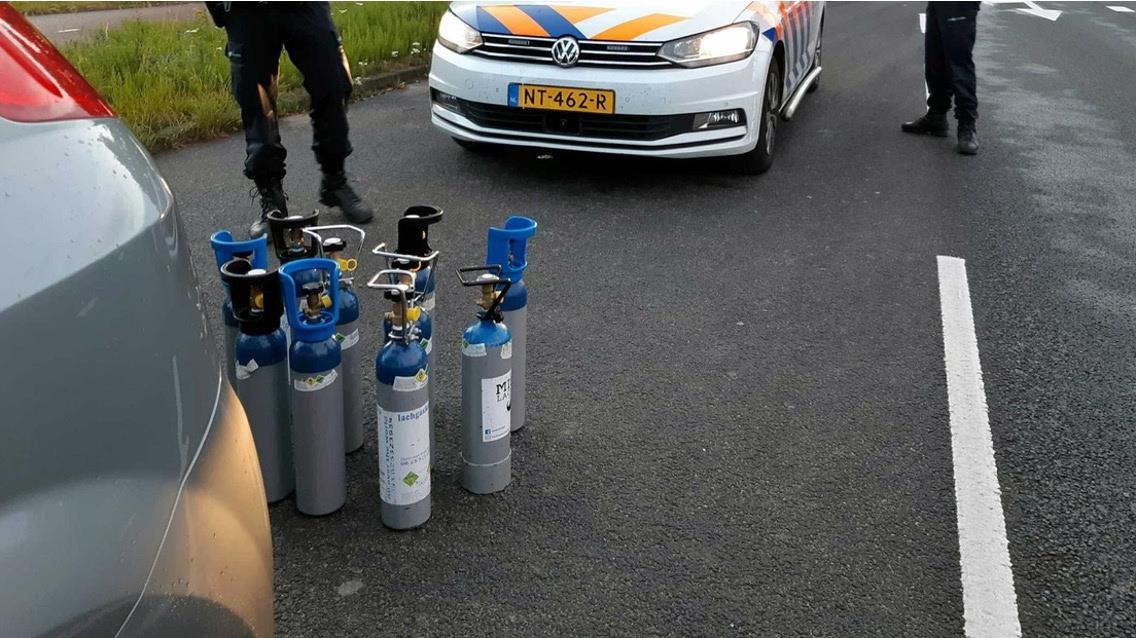Driving with a joint: is that possible?
The International Council on Alcohol, Drugs & Traffic Safety (ICADTS) has released new guidelines summarizing the most recent research on cannabis-impaired driving. The fact sheets are intended to help policymakers understand the consequences of cannabis use in traffic. They were developed in consultation with leading researchers in the field of drunk driving from 11 countries, including Maastricht University.
Worldwide, policy makers have many questions about the use of cannabis in traffic. Although cannabis seems to have an influence on driving ability, there are many individual differences in how a person reacts. Reason for the ICADTS to set up a working group of experts. The working group was co-chaired by UM, Traffic Injury Research Foundation Canada (TIRF) and Swinburne University in Australia.
Text continues below the picture

Alcohol and drugs
Whereas for alcohol it is clear where the line for safe driving lies, this is not entirely clear for cannabis. "Unlike alcohol, research into the harmful effects of THC - the active ingredient in cannabis - on driving is much more complex, because with cannabis there is no clear relationship between quantity and its effect," says Jan Ramaekers, a researcher at UM and former president of the ICADTS.
His colleague Robyn Robertson, co-chair and CEO of TIRF, explains: "In alcohol, a blood alcohol concentration (BAC) accurately reflects the amount of alcohol consumed. Despite variations between subjects, research shows that as the BAC increases, so does the degree of rice impairment. However, THC concentrations do not accurately reflect the amount of cannabis consumed or the degree of impaired driving of individual drivers, so determining the degree of impairment is much more complex and less straightforward."
Uniformity in policy
Despite individual variations in response to cannabis, researchers agree that cannabis can influence driving behavior. In combination with alcohol, even when used in low doses, it is a hazard to get into a car. Policy in this area is badly needed. In the Netherlands the sale of cannabis is formally punishable, but has been tolerated for decades under certain conditions. Recently, a number of countries have legalized recreational and/or medical cannabis use, including Canada, Georgia, Malta, Mexico, South Africa and Uruguay. In over a third of U.S. states, cannabis is legal. Other jurisdictions, such as Germany, are considering such a move, and this global trend is likely to continue. This also increases the need for a coordinated approach to cannabis use in traffic.
To date, jurisdictions have taken a variety of legal approaches to address the problem of drunk driving. "A priority for the future is to establish greater uniformity in how impaired driving is determined and how the results are recorded. This would allow us to pool data from different jurisdictions and better assess the impact of expanding legalization on road safety," says Tom Arkell, Research Fellow at Swinburne University of Technology.
More information on the website of the ICADTS.
Also read
-
When nitrous oxide (laughing gas) is used recreationally, its presence remains detectable in the breath and bloodstream for at least 60 minutes after inhalation, and the development of an instrument to measure it is technically feasible. These were among the findings of a study at Maastricht...
-
Milene Bonte, professor of Cognitive Neuroscience of Language and Literacy Development at UM’s Faculty of Psychology and Neuroscience, has received an NWO Vici grant of 1.5 million euros. The amount is earmarked for research into the timely identification of children in need of extra support to...
-
Four Maastricht research teams are starting their projects funded with money from the Open Competition of grant provider ZonMw. In addition, a Nijmegen research team has been awarded, which includes Harro van Lente, professor of Science and Technology Studies at Maastricht University (UM).


